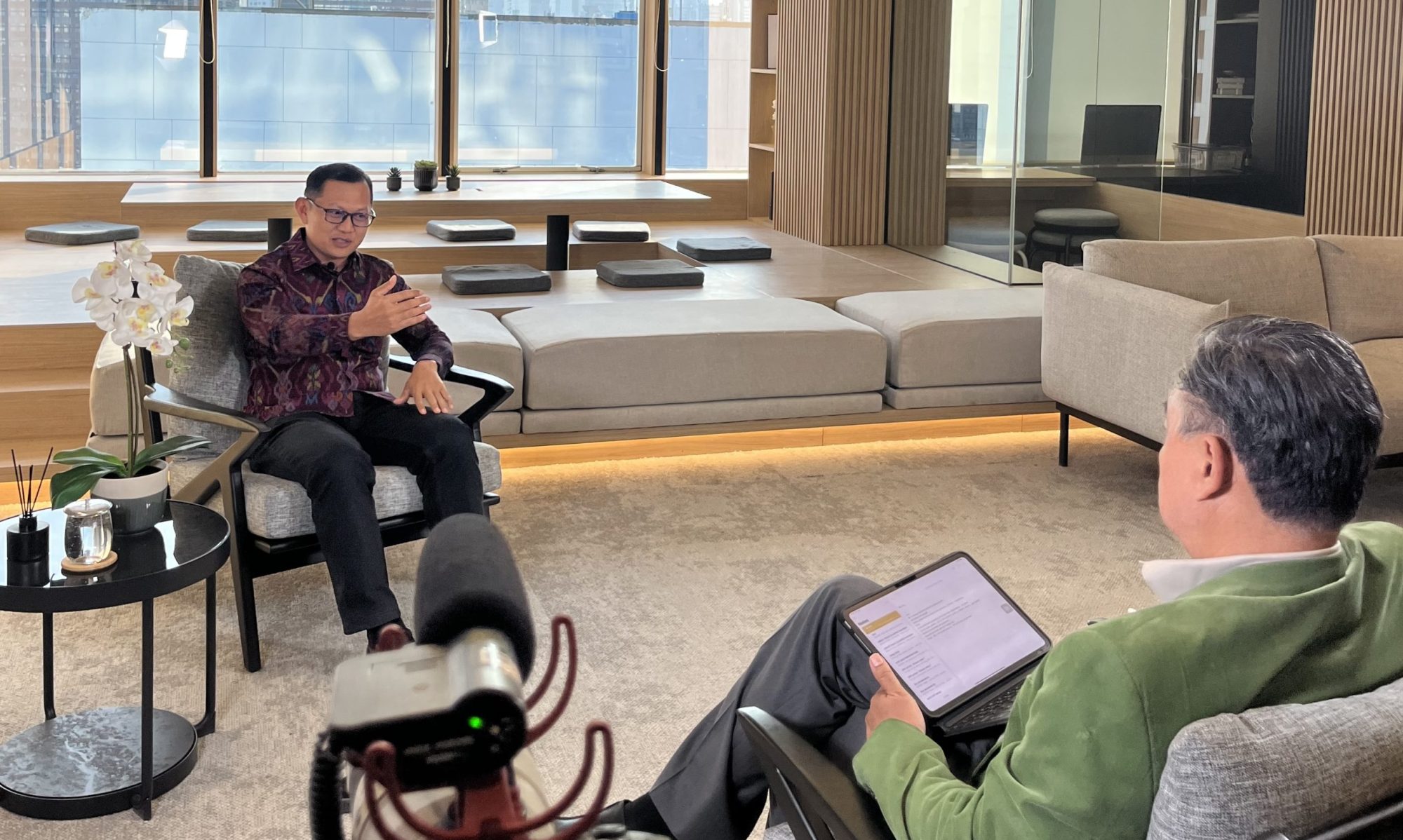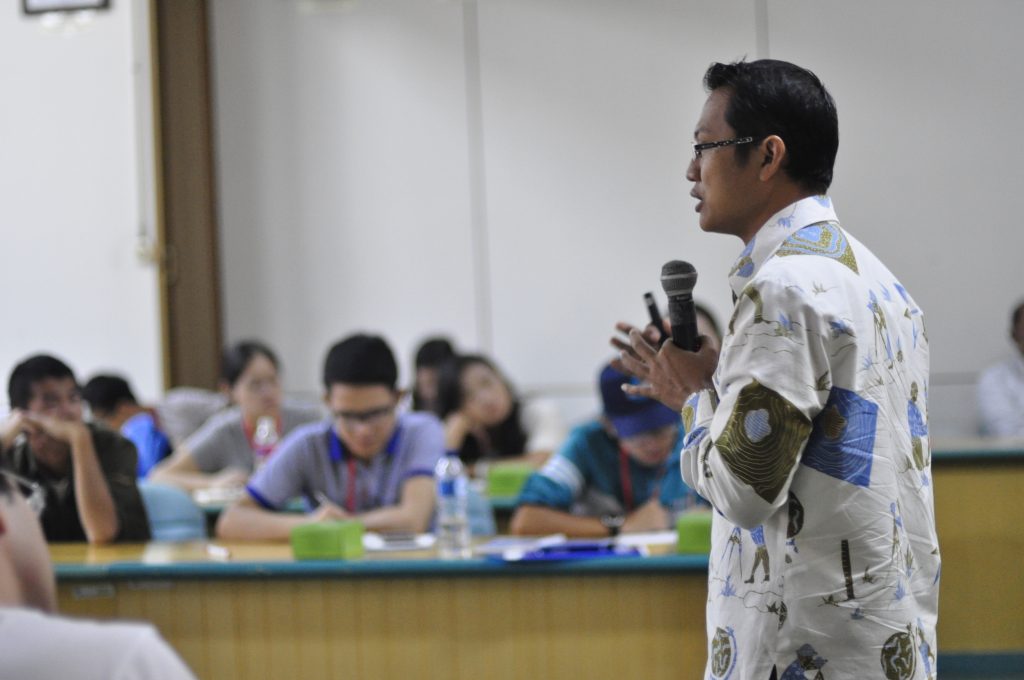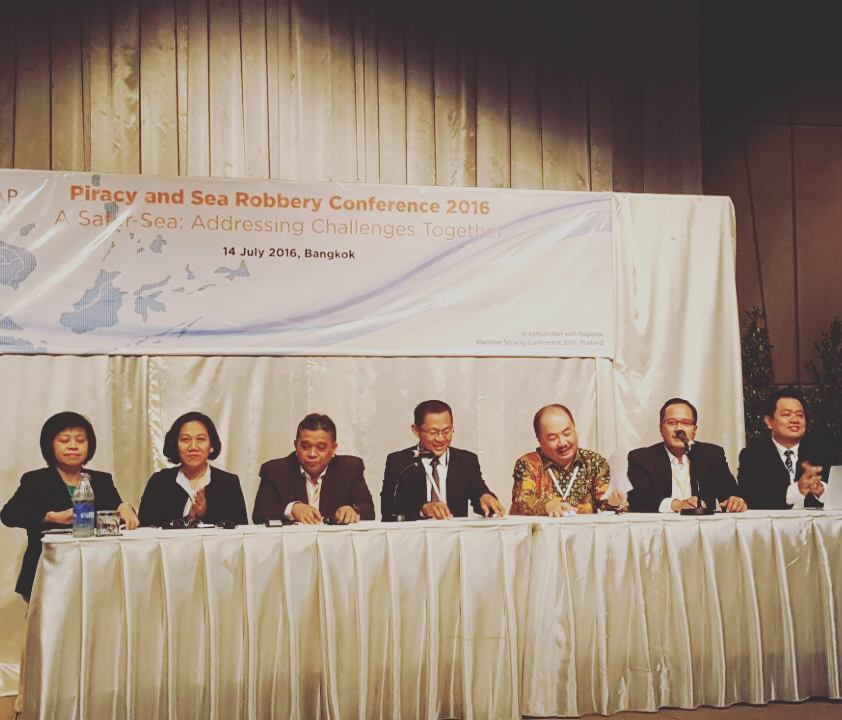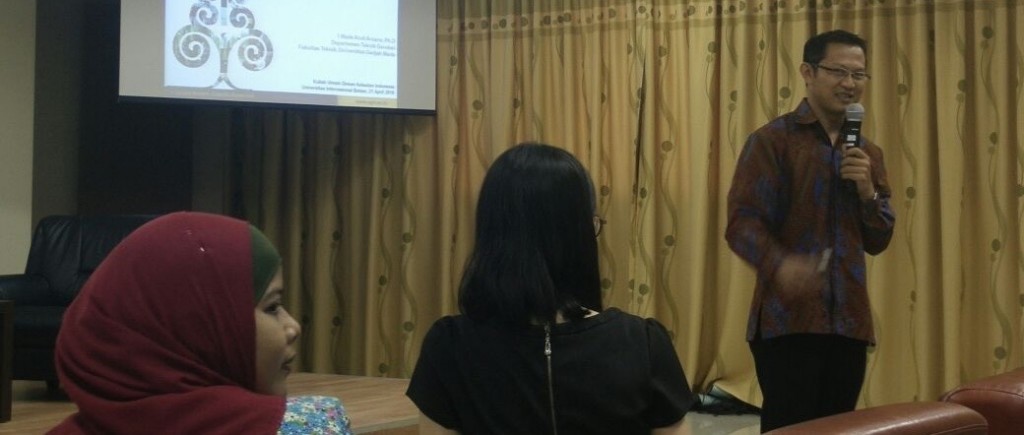DREaM 2016: Managing the Blue Planet
Universitas Gadjah Mada (UGM) has been conducting a summer program called DREaM since 2009 attracting young people from around the world to learn at UGM. This year, in 2016, the DREaM program is with a theme: managing the blue planet. In short, the program focuses on the issue related to ocean affairs and the law of the sea. The 2016 program attracts more than 4o students from a number of countries to come to Yogyakarta to learn and have fun at the same time.
I was asked by the organiser to deliver a lecture on geopolitics and maritime security. The lecture is on maritime boundary issues in ASEAN and beyond, including those in the South China Sea. It was interesting to observe how participants from China were interested in debate after the lecture. It shows how the topic attracts the participants, especially the Chinese, so much. The lecture was an interactive one where students did not only sit and listen but also actively asked questions and conveyed their opinion. I had fun.
How to Be a Moderator?
I was asked to be the moderator of a public lecture presenting an Ambassador, a former Minister and a Director at the Ministry of Foreign Affairs of Indonesia. Enjoy!
Moderating a Session on Maritime Security in Bangkok
Opportunities often come in a very short notice. This includes an opportunity to moderate a session on maritime security in Bangkok, organised by ReCAAP, a regional organisation based in Singapore. A good friend from Singapore once called me and asked whether or not I could be a moderator in Bangkok. It took me a while before saying yes, even though it meant that I would need to adjust my own schedule.
On 14 July 2016, I took a role as a moderator presenting six speakers from different countries in ASEAN. The topic was “Piracy and Sea Armed Robbery”, something that does not precisely fall into my expertise. However, I needed to say yes for it was a replacement to my colleague who was ill. She was scheduled to moderate the session but could not do that for health concerns. I am grateful for the opportunity for it forced be to learn. I enjoyed the session very much.
Talking South China Sea in China
Meeting LPDP Future Awardees in Bali
LPDP is special unit established by the Government of Indonesia to manage fund for scholarship. The scholarship is grated to bright Indonesians to pursue their study (Master and PhD) in selected universities in Indonesia and overseas. Arguably, LPDP scholarship might be the most well-known scholarship in Indonesia nowadays. Almost all Indonesian students put LPDP in their wish list, when it comes to studying with scholarship.
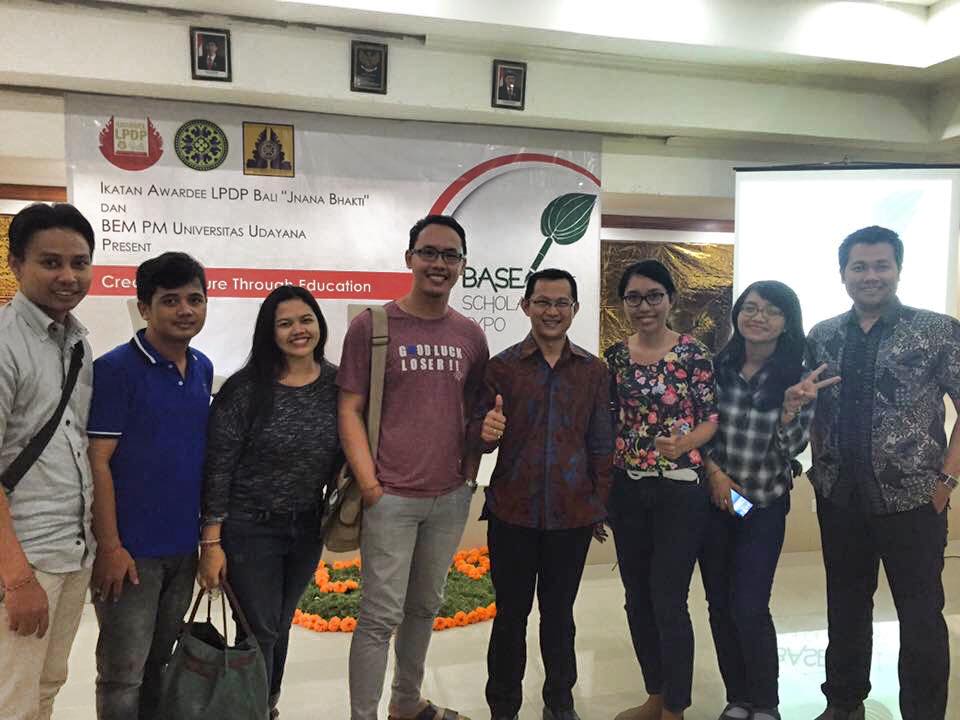
I met a number of LPDP awardees and I am impressed by their quality. One good thing about them is their ability and willingness to organise themselves in one strong family. Even since pre-departure activities they have demonstrated good collaboration for contribution. Before departing to places where the will conduct they study, LPDP awardees usually organise a number of activities for different purposes. One favourite program is sharing scholarship information for future awardees.
I was lucky enough to be invited by LPDP awardees, chapter Bali, to share my insight on scholarship to study master or PhD, especially in overseas universities. It was easy to feel the spirit of young Balinese to pursue their dream studying overseas. I am optimistic that many of the students I met in Bali will be the future awardee of LPDP.
Meeting the Leaders of Timor Leste
It was a historical visit to Dili on 19 May 2016. Historical because it was the first one for me and also because it was a meeting with Ramos Horta, Mari Alkatiri and the current Prime Minister of Timor Leste, Dr. Rui Maria de Araujo. There are not many bigger things than presenting your ideas in front of former president, former prime minister and a current minister of a country. It was a rewarding experience.
I was invited by President Xanana Gusmao (yes, you are right, Xanana) to deliver a presentation on Indonesia’s perspective on maritime boundary delimitation and the law of the sea. It was a quite big conference attended by 500 plus participants and a number of prominent figures were there. A number of ministers were present and I had a good opportunity to network. It was certainly a great and invaluable experience to have.
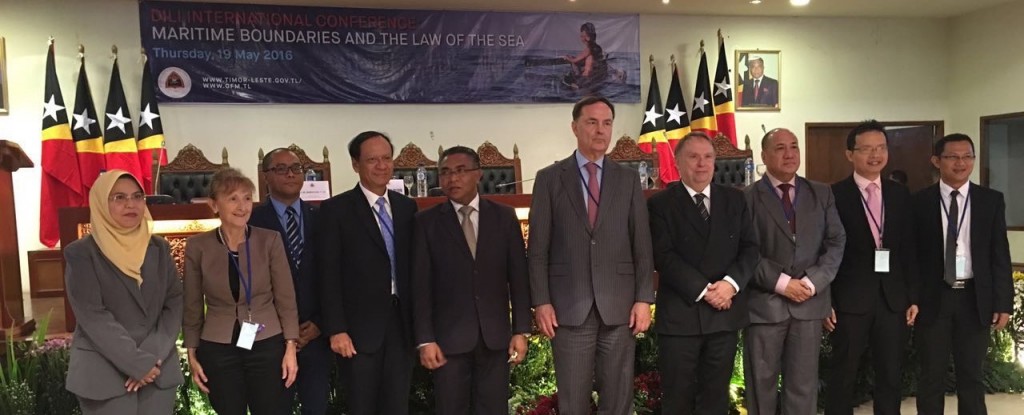
Also present in the conference was the President of ITLOS, Judge Vladimir Vladimirovich Golitsyn, the Indonesian President’s Special Envoy for maritime boundary delimitation between Indonesia and Malaysia, Dr Edy Pratomo, and Prof. V. Love, a prominent international lawyer from the UK. Academically, it was certainly a high profile conference and I undoubtedly learned a lot from this immortals.
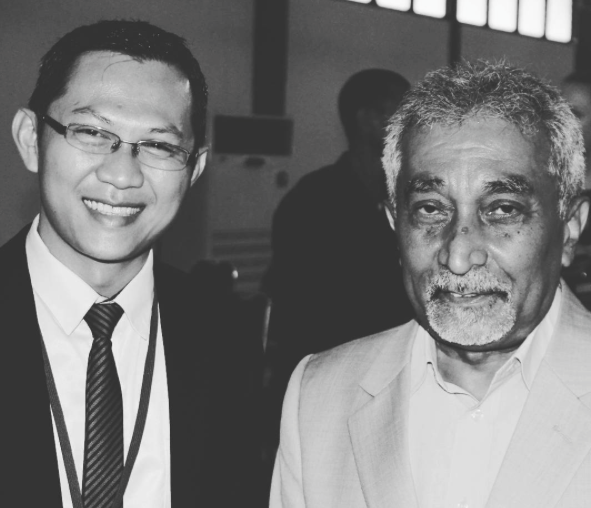
Catatan lebih lengkap dalam Bahasa Indonesia ada di sini.
A Guest Lecture at UIB in Batam
Having an opportunity to share ideas with new people is always a rewarding experience. This also applies to a guest lecture that I gave at the Batam International University or UIB in Batam on 21 April 2016. It was a fist-time experience giving a lecture at UIB and it was a great one. The students, which mainly come from law faculty, were highly enthusiastic and attentive. Maritime boundary is apparently an attractive issue for them who residing around border areas between Indonesia and Singapore.
The guest lecture that I gave was part of a research fieldwork under the coordination of the Indonesian Marine Council (Dekin). I have been involved in a research funded by the institution covering a topic of maritime diplomacy in the context of global maritime fulcrum. This research is part of strategy of Dekin in conducting studies in order to prepare input and suggestion for the Indonesian government with regard to the implementation of the global maritime fulcrum doctrine.
To Get Indonesia and India Closer
Indonesia and India are two big countries with a lot similarities. Both are democracies with big number of population. India is the largest democracy in the world and Indonesia comes third after the United States of America. While Indonesia is an archipelagic State and India is a continental State, both are developing rapidly economically. Culturally, both countries are also very similar. Values and culture of Hindu, which characterise India in general, can easily seen in the life of people in Indonesia, even though Islam is the religion of the majority of the people.
With the aforementioned similarities, it is surprising to observe that the relationship between India and Indonesia is not yet as strong as it should be. Trading value between Indonesia and India is in fact lower that that between Indonesia and Iran, for example. Collaboration between institutions in Indonesia and India needs to be improved. For these reasons, top leaders in both countries view that the relationship between India and Indonesia needs to be strengthen through the establishment of Eminent Persons Group (EPG) in both Side.
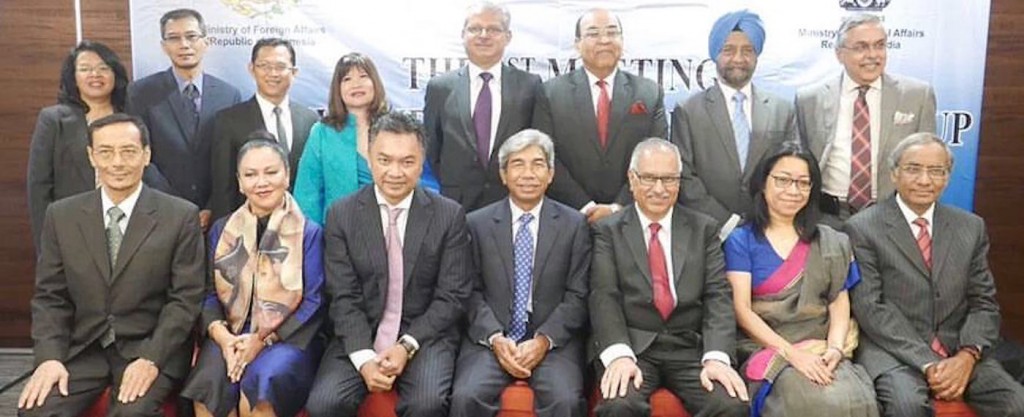
In 2015, both Indonesia and India finalised a group in each side, consisting of five persons. I am honoured to be asked by the Government of Indonesia to be a member of the Indonesia-India EPG serving at the Indonesian side. I have all the honour to serve with Dr. Dino P. Djalal (Former Ambassador of indonesia to the US), Medyatama Suryodiningrat (Director of Antara), Prof. Wiendu Nuryanti (Former Vice Minister of National Education), and Shinta Kamdani (Indonesian Chamber of Commerce). Maritime issue between the two countries is, in particular, the part of my roles in the team.
The first meeting of Indonesia-India EPG took place in Jakarta on 4-5 April 2016 where for the first time the two teams from both countries get to know each other and started conversation. The meeting went well and both parties were frank enough to talk about the reality in both sides. After the meeting, the delegation met the Indonesian Minister of Foreign Affairs, Ms Retno L.P. Marsudi. The minister delivered important message that the EPG need to hold as guidance in delivering their tasks.
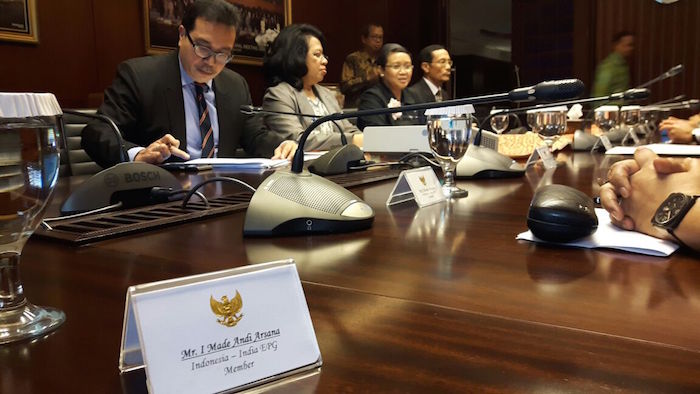
For me personally, this is an opportunity to learn a lot of issues with regards to Indonesia-India relationship. Intensive and extensive trans-disciplinary interaction did enrich me without doubt.
Tragedi Ikan di Laut Tiongkok Selatan
Kapal nelayan Tiongkok ditengarai menangkap ikan di Laut Tiongkok Selatan, di dekat Natuna. Petugas Indonesia pun ketika itu siap menindak mereka.Ternyata, kapal nelayan Tiongkok itu “dikawal” kapal besar dengan peralatan lengkap. Petugas Indonesia yakin kapal Tiongkok itu masuk ke perairan Indonesia, sementara Tiongkok juga yakin kapalnya beraktivitas di perairan Tiongkok. Apa pasalnya?
Berdasarkan Konvensi PBB tentang Hukum Laut (UNCLOS) yang diakui dan diratifikasi oleh Indonesia dan Tiongkok, sebuah negara pantai berhak atas kawasan laut/zona maritim yang diukur dari garis pangkal (garis pantai). Zona maritim itu meliputi laut teritorial (12 mil laut), zona tambahan (24 mil laut), Zona Ekonomi Eksklusif (ZEE) (200 mil laut) dan landas kontinen (dasar laut) dengan lebar bisa lebih dari 200 mil laut.
Zona maritim
Di Laut Tiongkok Selatan (LTS), Indonesia berhak atas zona maritim yang diukur dari Kepulauan Natuna ke arah utara. Demikian juga negara-negara tetangga-terutama Vietnam dan Malaysia-mereka punya hak yang sama. Karena jarak yang berdekatan, klaim maritim negara-negara itu saling tumpang tindih sehingga perlu penetapan batas maritim. Indonesia sudah menetapkan batas maritim (dasar laut) dengan Malaysia (1969) dan Vietnam (2003), tetapi belum menetapkan batas ZEE. Meskipun garis batas ZEE belum disepakati, Indonesia sudah mengajukan usulan yang dituangkan dalam Peta NKRI. Peta NKRI 2015, misalnya, memuat klaim garis batas ZEE Indonesia di sebelah utara Natuna di kawasan LTS. Meskipun ini klaim sepihak yang masih perlu kesepakatan dengan Vietnam dan Malaysia, Indonesia menjadikan ini sebagai dasar untuk mendefinisikan kawasan laut termasuk wilayah pengelolaan perikanan. Dalam perspektif Indonesia, batas terluar kawasan laut Indonesia sudah jelas meskipun sebagian dari batas-batas ini baru klaim sepihak yang perlu disepakati dengan tetangga.
Tiongkok tak pernah dianggap tetangga oleh Indonesia dalam konteks batas maritim. Jika berpedoman pada UNCLOS, hak zona maritim Tiongkok tidak tumpang tindih dengan Indonesia sehingga tak perlu penetapan batas maritim. Namun, Tiongkok punya pandangan lain. Sejak 1947, Tiongkok mengajukan klaim dalam bentuk peta dengan garis putus-putus yang melingkupi sebagian besar kawasan LTS. Konon, dasarnya alasan sejarah meski banyak hal yang belum jelas perihal klaim ini. Inilah yang rupanya menjadi alasan mengapa lokasi insiden itu disebut “Chinese traditional fishing ground” oleh Tiongkok. Garis yang dikenal dengan nine-dashed line itu diprotes semua negara di kawasan, termasuk Indonesia yang menolak melalui PBB.
Secara legal, nine-dashed line Tiongkok itu “tidak ada” bagi negara-negara di kawasan. Tiongkok sudah meratifikasi UNCLOS sehingga seharusnya mengklaim laut berdasarkan UNCLOS dengan lebar tertentu dan diukur dari garis pangkal. Klaim laut harus jelas jaraknya dari daratan sesuai ketentuan UNCLOS. Nine-dashed line jelas tak mengikuti kaidah ini. Di sisi lain, Tiongkok mungkin bisa berargumen bahwa klaim laut itu diukur dari daratan Kepulauan Spratly yang mereka klaim. Namun, klaim itu masih disengketakan negara lain. Lagi pula, kalaupun klaim laut itu diukur dari Kepulauan Spratly, bentuknya tak akan seperti nine-dashed line. Yang menjadi persoalan, klaim Tiongkok di LTS ini tumpang tindih dengan klaim maritim Indonesia di sebelah utara Natuna. Meski sama-sama sepihak, klaim Indonesia cenderung lebih kuat karena berdasarkan hukum yang berlaku (UNCLOS) dan Tiongkok pertimbangan sejarah.
Bolak balik terjadi
Kedatangan nelayan Tiongkok ke kawasan laut di sebelah utara Natuna ini sudah terjadi setidaknya tiga kali (2010, 2013, 2016). Indonesia yang meyakini dan ingin menegaskan klaimnya tentu berusaha menangkap atau mengusir nelayan Tiongkok dengan tuduhan illegal fishing. Tiongkok sepertinya telah bersiap diri dan bahkan seakan “mengawal” aktivitas nelayan itu dengan kapal besar. Setiap kali nelayan akan ditangkap petugas Indonesia, kapal “pengawal” hadir melindungi. Menariknya, posisi kapal nelayan Tiongkok memang selalu berada di kawasan dalam lingkup klaim nine-dashed line. Rupanya Tiongkok memang serius menegaskan klaimnya berdasarkan nine-dashed line meskipun jelas-jelas tidak diakui negara-negara lain.
Apakah tindakan Indonesia benar? Sebagai negara berdaulat yang mengklaim laut sesuai hukum internasional, Indonesia tidak bisa membiarkan aktivitas nelayan Tiongkok di kawasan itu. Maka, penangkapan dan protes formal menjadi logis. Meski demikian, perlu diingat bahwa garis-garis batas di kawasan itu adalah klaim sepihak yang masih perlu disepakati dengan tetangga. Maka dari itu, mengajukan kasus ini ke pengadilan internasional, misalnya, bukan langkah strategis.
Apakah Indonesia dan Tiongkok perlu menetapkan batas maritim di LTS? Posisi Indonesia jelas, klaim Tiongkok yang berdasarkan sejarah itu tidak diakui dan artinya tidak ada tumpang tindih klaim yang perlu diselesaikan. Dalam konteks batas maritim, Tiongkok bukan tetangga Indonesia. Namun, Tiongkok hadir di kawasan itu dan menegaskan klaimnya berdasarkan nine-dashed line adalah fakta. Indonesia tentu tidak bisa mengabaikan ini begitu saja dan harus bersiap-siap dengan strategi terbaik.
Semua pihak di Indonesia perlu memiliki pemahaman yang sama terhadap kasus ini. Semangat melindungi sumber daya perlu didukung pemahaman terhadap hukum laut termasuk aspek geospasial sehingga paham konteks legal dan teknisnya. Di sisi lain, kita perlu paham bahwa Indonesia adalah pihak “netral” dalam sengketa wilayah/kedaulatan di LTS dan telah berperan aktif menawarkan solusi. Semangat untuk menjaga kedaulatan itu penting dipelihara sambil tetap memainkan peran pemimpin yang bijaksana dan layak disegani di kawasan.
I MADE ANDI ARSANA
Head Office of International Affairs Directorate of Partnership; Alumnus and Global Initiatives UGM
Versi cetak artikel ini terbit di harian Kompas edisi 5 April 2016, di halaman 6 dengan judul “Tragedi Ikan di Laut Tiongkok Selatan”.
